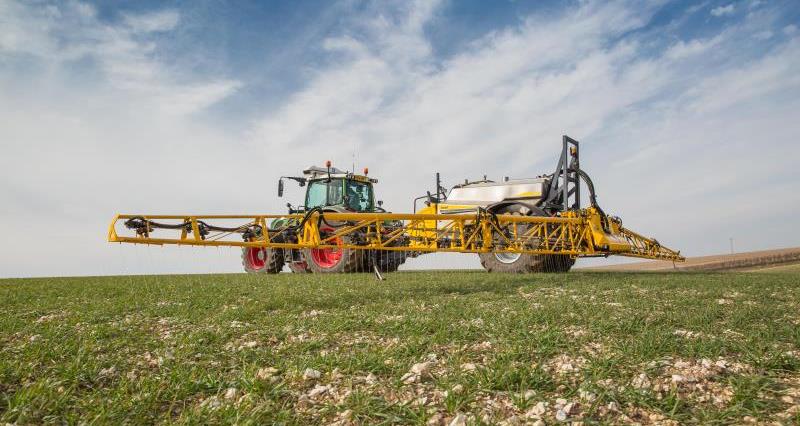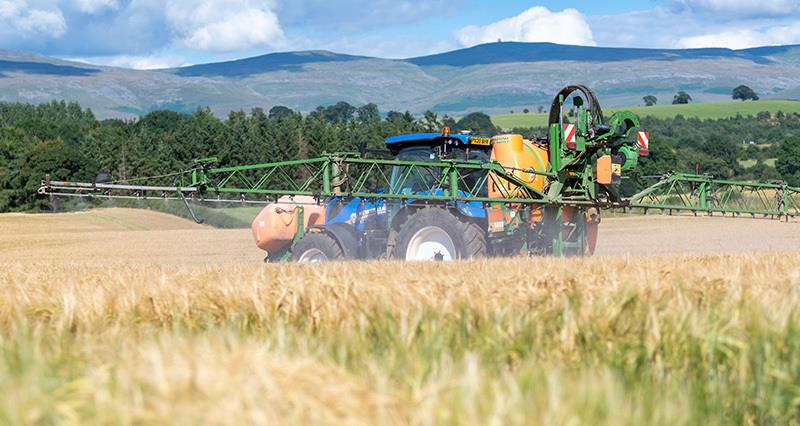Over the last 10 years glyphosate has become one of the most hotly debated plant protection products. The NFU has always lobbied for that debate to be led by the science and evidence.
More than 11,000 pages of independent expert review of that evidence has concluded its safety and provides good reason for EU regulators to re-approve glyphosate.
NFU Vice President David Exwood said: “Glyphosate reduces the need to use other herbicides, helps to protect soil and cuts greenhouse gas emissions by reducing the need for ploughing. It also enables European farmers to grow crops that help produce safe, affordable and high-quality food.”
Latest news
At the end of November 2023, the European Commission adopted and published the ‘Implementing Regulation’, renewing the approval of glyphosate for a period of 10 years, until 15 December 2033.
The Commission concluded that, based on comprehensive safety assessments carried out by the EFSA (European Food Safety Authority), the ECHA (European Chemicals Agency), and regulatory experts in EU Member States, it would renew the approval of glyphosate, subject to certain new conditions and restrictions.
One of these is that pre-harvest use as a desiccant will no longer be allowed in the EU (but pre-harvest use for weed control is still permitted), and there is also the need for member states to individually consider certain mitigation measures, such as buffer strips to reduce the risk of drift.
Read more at: EU renews glyphosate approval for further 10 years.
Timeline of events:
November 2023
The Appeal Committee met on 16 November. Mirroring the Standing Committee, the vote at the Appeal Committee also failed to deliver a qualified majority either in favour or against the Commission's proposal. In such situations, when there is no qualified majority either in favour or against, the EU legislation requires the Commission to implement the proposed regulation.
October 2023
The European Commission put forward its draft glyphosate regulation, to renew approval for 10 years, to the vote by member states in the Standing Committee on Plants, Animals, Food and Feed on 13 October. As expected by many, the required majority of votes to adopt (or reject) the renewal proposal was not reached. As a result, the Commission referred the draft regulation to the Appeal Committee.
September 2023
Defra Secretary of State Thérèse Coffey has said farmers will continue to have access to glyphosate once the UK’s post-Brexit pesticides regulation regime is developed, describing the herbicide as “critical for regenerative farming”.
Speaking at a Westminster reception as part of the NFU’s Back British Farming Day, Dr Coffey added: “The science is clear. The farmers need it. It is critical to regenerative farming. It is staying.”
Read the story in full at: Defra Secretary of State confirms glyphosate ‘is staying’.
July 2023
The EFSA assessment of the impact of glyphosate on the health of humans, animals and the environment does not identify any critical areas of concern. EFSA’s conclusions are based on the 11,000 page renewal assessment report, which reviews all the evidence and was completed by independent regulatory experts.
December 2022
The European Commission adopted implementing regulation (EU) 2022/2364, which extended the current glyphosate authorisation which expired on 15 December 2022, until 15 December 2023, giving the EFSA and the European Commission more time to complete the EU renewal assessment.
November 2022
The European Commission’s proposal to extend the December 2022 expiry date on the current active substance approval for glyphosate is blocked by several EU member states.
Delays to the EU renewal assessment process means the approval will not be completed before the current EU active substance approval for glyphosate expires on the 15 December 2022 (the GB expiry date is 15 December 2025).
October 2021
The ECHA (European Chemicals Agency) and EFSA (European Food Safety Authority launched parallel scientific consultations on glyphosate, as EU authorities prepare to decide on whether to reauthorise the product for use once the current authorisation expires in 2022.
July 2021
A recent review supports the conclusion that glyphosate-based products are safe when used as directed and that glyphosate is not carcinogenic. The AGG (Assessment Group on Glyphosate) consists of independent scientific experts from four EU member states (France, Hungary, Sweden and the Netherlands).
The group has been conducting a review of glyphosate’s toxicity ahead of the active ingredient’s expiry date of 15 December 2022. The report concludes that glyphosate “meets the approval criteria for human health” and recommends approval “as an active substance to be used in plant protection products”.
December 2019
The US EPA (Environmental Protection Agency) has taken another step in its ongoing review of glyphosate, concluding it “did not identify any human health risks from exposure to glyphosate”.
May 2019
EU member state representatives decided how an application for the reauthorisation of the pesticide active substance glyphosate will be dealt with. Representatives endorsed a Commission proposal for the relevant authorities of four member states to review the application to reauthorise glyphosate in the EU.
The four that will jointly carried out the review are France, Hungary, The Netherlands and Sweden.
The decision stated that the regulatory authorities of these countries must “endeavour to reach consensus during the evaluation”.
The current EU licence for glyphosate expires on 15 December 2022 and the member state authorities must receive an initial application for reauthorisation by a producer of the chemical by 15 December 2019.
March 2019
The European Union’s General Court ruled that the EFSA must publish studies related to its safety assessment of glyphosate in 2015.
These had not been made public because of concerns about breaching business confidentiality rules. The court ruling found that public interest in the possible effect of glyphosate on health and the environment is more important than protecting confidential business information and that EFSA was wrong to refuse access to the studies.
A new study linking glyphosate use to an increased risk of developing cancer also gained some attention in the press. NFU senior regulatory affairs adviser Dr Chris Hartfield puts the study in perspective and underlines the importance of glyphosate as part of a wider IPM (integrated pest management) system.
February 2019
The European Parliament has approved a report on EU pesticide rules, which makes a series of recommendations, including a further review of the studies used in the safety assessment of glyphosate. The report, produced by the Special Committee on the EU authorisation procedure for pesticides, calls for the review while recognising several competent authorities have confirmed the safety of glyphosate.
As recently as January 2019, having conducted a thorough scientific review, Health Canada upheld its decision from 2017, which declared glyphosate does not pose risks of concern to humans or the environment when used properly.
Health Canada also noted that no pesticide regulatory authority in the world currently considers glyphosate to be a cancer risk to humans.
The EU report also says EU pesticide regulation is among the most stringent in world but suggests that improvements are needed.
In reference to agriculture, the report considers that the “quality, safety, availability and affordability of food for consumers, fair income for, and long-term sustainability of, agricultural production” should be taken into account.
The Special Committee will now be disbanded and the report considered by the European Commission.
October 2018
Scientists reported the first signs of glyphosate resistance in the UK and underlined the need for increased vigilance and monitoring. Researchers from ADAS and Rothamsted Research found reduced glyphosate sensitivity among some populations of sterile brome, also known as poverty brome or barren brome, in Rutland and Oxfordshire.
October 2017
The NFU met with and urged senior MEPs to support the renewal of glyphosate ahead of a crucial European Parliament debate, re-iterating how vital glyphosate is to farmers.
June 2017
The Oxford Economics report shows a ban on glyphosate would reduce the agriculture sector’s direct contribution to the UK economy by more than £900 million annually.



